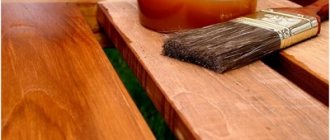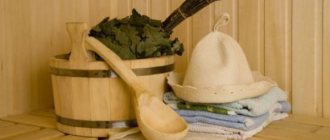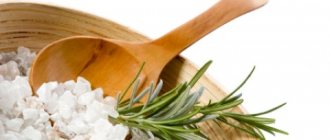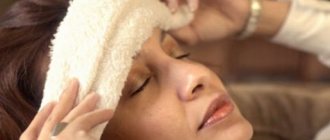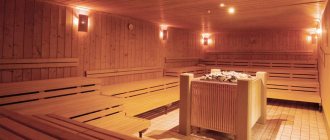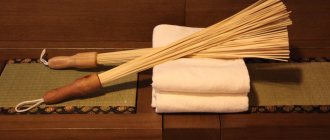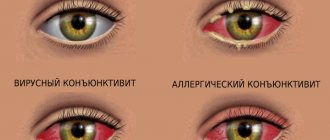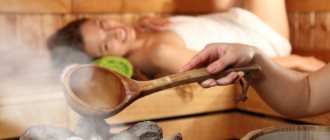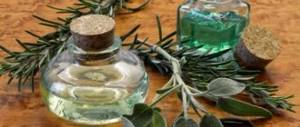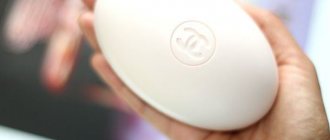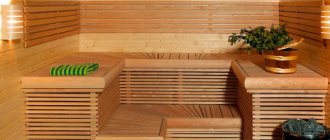Essential oils and their uses
Essential oils are volatile oily liquids found in plants. They give aroma and perform many other useful functions: protect plants from pests and diseases, cold and drought, attract pollinating insects, and participate in metabolism. Any essential oil has a complex composition, but the basis is made up of three chemical elements: carbon, hydrogen, oxygen. The formulas of essential oils have not yet been fully understood, but their healing effects on the human body are well known.
People have learned to extract essential oils from plant parts and use them for medicinal and health purposes.
Almost all essential oils have an antiseptic and anti-inflammatory effect. Due to this, they are often used as an adjuvant in the treatment of viral and infectious diseases. In addition, aromatic oils relieve pain, increase immunity, enhance metabolism, remove toxins, protect cells from aging, and also regulate a person’s mood and psychophysiological state.
Bath procedures are a means of relaxation and healing of the human body, especially when carried out according to all the rules and without drinking alcohol. And when using aromatic oils in a bath, their effect is enhanced many times over, because the capillaries and skin pores expand from the heat and the healing components of plant esters easily penetrate into the blood. And in the bathhouse and sauna, the body is cleansed, removing unnecessary substances and excess liquid through sweat, so it better absorbs all the useful elements.
The areas of the human brain responsible for mood and perception of smells are nearby, so aromas can radically change a person’s mood
The pronounced disinfecting properties of essential oils make it possible to use them to ensure hygiene in a steam room - rubbing or sprinkling the walls and floor will help cope with fungi and bacteria that multiply in a humid and warm environment.
In the cold season, the bathhouse contains products for the prevention and treatment of acute respiratory infections and acute respiratory viral infections, and in the warm season - anti-stress, invigorating and refreshing. Mint and citrus aromas are good in summer, and pine and spicy aromas are good in winter.
Flaxseed oil with the addition of essential oils (tea tree, juniper, bergamot) will disinfect the wood and create an invisible film that makes it easy to wash the steam room after finishing the procedures.
Table: the best oils for baths and saunas
| Essential oil | Effect on the human body |
| Orange | Eliminates cellulite, invigorates, improves immunity |
| Bergamot | Normalizes blood pressure, increases libido, has an antibacterial effect |
| Spruce | Restores tissue and muscles, fights colds, stimulates metabolism |
| Lavender | Calms, relaxes, has a hypnotic and antidepressant effect, treats colds, heals burns and wounds |
| Lemon | Elevates mood, stimulates brain processes, helps with migraines, resists varicose veins |
| Mandarin | Strengthens the immune system, tones the body, stimulates appetite, increases libido, removes waste and toxins |
| Melissa | Improves mood, suppresses melancholy and depression, restores strength, improves brain function, memory and attention |
| Myrtle | Helps against flu and colds, strengthens the walls of blood vessels, regulates the functioning of the thyroid gland, destroys fungi, bacteria and viruses |
| Juniper | Normalizes blood pressure, suppresses fears and irritation, helps cope with stress, disinfects, fights colds |
| Mint | Relaxes muscles, relieves pain, reduces migraines and nausea, refreshes, fights respiratory diseases |
| Neroli | Eliminates insomnia, relieves anxiety, helps with respiratory diseases, improves the functioning of the heart and digestive system |
| Pine | Enhances the senses, relieves stress, protects against colds, relieves muscle tension and fatigue, heals cuts and wounds |
| Sandalwood | Stimulates, improves immunity, relaxes, helps to fall asleep, treats spasms and muscle pain |
| Thyme (thyme) | Strengthens and increases the endurance of the nervous system, activates the immune system, disinfects, heals wounds, stimulates brain function, helps with insomnia |
| Tea tree | Is the best antiseptic, destroys fungi, bacteria and viruses |
| Eucalyptus | Clears the breath, relieves pain, treats respiratory diseases, relieves fatigue, strengthens the body |
Benefits of aromatherapy
Since ancient times, bath procedures have been considered a miraculous remedy for treating ailments and ailments. The main feature of a real bath is healing steam. Initially, to effectively treat and prevent colds, decoctions of medicinal herbs were splashed onto hot stones. This procedure helped cleanse the skin, restore vital energy, and accelerate the healing of the body.
The appearance of essential oils brought bathing procedures to a new level. Today they are used for:
- Eliminate dandruff;
- Getting rid of cellulite;
- Hair growth and strengthening;
- Reducing fatigue;
- Relieving swelling from insect bites;
- Pain relief from sprains, bruises, muscle and joint pain;
- Fighting frigidity and impotence;
- Treatment of epilepsy, bronchial asthma, ischemia;
- Reducing symptoms of infectious diseases.
Rules for using aroma oils
Aromatic oils are not used in their pure form; they are dissolved in water or special emulsifiers: sea salt, honey, cream or whey.
When preparing the composition for a bath or sauna, you need to take a wide-necked container made of heat-resistant material, pour warm water into it and drop essential oil at the rate of 10 drops per 15 square meters of room. The essential oil will not dissolve, but will float on the surface in separate drops and gradually evaporate. You can first stir the oil in the emulsifier (2-3 tablespoons), and then add this mixture to the water. The dishes should be placed in the steam room closer to the heating elements (in a sauna) or hot stones (in a Russian bath). In a sauna, a vessel with water and oils is hung directly above the stove for rapid evaporation. In a Russian bath, you can splash fragrant water on the floor, walls and benches, or use a spray bottle to spray the liquid throughout the steam room. You can moisten a broom in the same water for steaming.
The broom can also be sprinkled with undiluted essential oil, provided there are no allergies.
When using essential oil for the first time, you should stay in the steam room for no more than 3-5 minutes. It is necessary to check the individual reaction to a new substance. If everything is fine, then you can increase the stay time to 15–20 minutes. In order for the aromatic steaming procedure to lead to lasting improvement of the body, it must be repeated once a week for 2 months.
After completing the bath procedures, you can do a massage with aromatic oils - the heated skin will perfectly absorb all the beneficial substances. Rinsing the body with water with the addition of essential oil is a good tonic.
Massage with aromatic oils is usually carried out after completing bath procedures.
If you want to get fragrant steam faster, then direct irrigation of heated stones is allowed. But then it would be better to first water them with plain water to reduce the temperature, and only then splash the aromatic liquid on the stones.
When pouring water with aroma oil onto stones, you need to be careful, because many essential oils are flammable
As for taking aromatic baths, essential oils are also used in diluted form. It is better to use emulsifiers or bath foam as a basis. For a full bath, usually take 2 tablespoons of base and stir 6-8 drops of essential oil in it. Both individual oils and their mixtures are used, depending on the purpose of aromatherapy. The water should not be very hot; the optimal human body temperature is 35–36 degrees. Take an aromatic bath for 15 to 30 minutes, the course to achieve a therapeutic effect is 10–15 procedures (each or every other day).
When taking aromatic baths, you can decorate your bathroom with live plants and candles, just like in expensive spas.
If you first cleanse your body using a washcloth or scrub, the beneficial substances will penetrate the skin more easily and will work more efficiently. After taking a bath, it is better not to wash off the fragrant water, but to wrap yourself in a terry sheet and allow the liquid to be absorbed into the skin.
Herbs for aromatherapy
To obtain beneficial steam in a private bath, medicinal herbs are often used to prepare aromatic decoctions. The composition must be fresh, so the herbs must be brewed immediately before visiting the steam room. The broth prepared in a saucepan should be poured only into glass containers - plastic bottles can release substances harmful to health when heated. Healing steam is obtained after splashing a slightly cooled solution onto the stones - using a hot solution can cause a burning smell.
A good aroma comes from bouquets of dry herbs. But it “works” only in a Russian bath, since hot steam is necessary to release useful substances.
All herbs have different healing properties. The main thing is to know which plant to use in a certain situation:
- Cloves – adds positive emotions and strength;
- Bergamot – restores joy even with strong apathy and reduces aggressive energy;
- Coriander – relieves drowsiness, increases sexual activity and overall tone;
- Spruce – eliminates stress, nervousness, improves mood;
- Neroli – increases sexual energy, causes positive emotions;
- Thuja – increases internal strength after physical and psychological stress, stress and illness.
Precautions and contraindications
Contraindications to aromatherapy bath procedures:
- epilepsy;
- oncological diseases;
- bronchial asthma;
- cardiac ischemia;
- acute viral diseases;
- kidney and central nervous system diseases;
- pregnancy, breastfeeding;
- individual intolerance.
Children and the elderly should use essential oils in the bath with caution.
If there are children in the bath or sauna, then the essential oil must be selected taking into account the age of the child, since many oils are approved for use for children no earlier than 12 years old
Following simple precautions will help avoid the unpleasant consequences of aromatherapy:
- Essential oils and mixtures have individual effects on people. Focus on the smell - if you don’t like it, then this oil is not for you. Its use may lead to headaches and poor health. There are many oils with similar effects and you just need to find yours.
- If you have not used this essential oil before, you need to make sure you are not allergic. To do this, apply a teaspoon of any vegetable oil with 2 drops of essential oil dissolved in it on the inside of the wrist or elbow and leave for several hours. If irritation does not appear during this time, the product can be used.
- Don't forget that any essential oil is flammable. Do not use aromatic oils near an open fire, do not apply them in their pure form to hot stones or heating elements.
- Do not allow plant esters to get into your eyes or mucous membranes. If the product does get into your eyes, then you need to rinse the area with vegetable oil - olive or sunflower, and only then with water. If the discomfort continues after this, you should consult a doctor. Essential oil is an aggressive substance for mucous membranes and can cause a real chemical burn.
- Aromatic oils must be of high quality. Obtaining the plant ester is an expensive process, so the final product cannot be cheap. Especially if it is an exotic plant growing in other countries. The bottle with natural essential oil contains the Latin name of the plant from which it is produced.
The container for storing essential oil should be made of dark glass, since exposure to light causes the oil to lose its healing properties.
- Store essential oils correctly - in a cool place, and do not use them after the expiration date.
- Not all aromatic oils are compatible with each other, so combining them according to your own original recipes can be dangerous. Focus on information about complementary fragrances, often it is indicated on the packaging or in the annotation. Some esters have similar effects and mixing them does not make sense. You can find detailed tables online showing beneficial combinations of various aromatic oils.
Recipes for baths, saunas and baths
Plant esters have a healing, activating or relaxing effect. At high temperatures, the effect will occur primarily on the respiratory system of the body, because steam with essential oils provides an inhalation effect. Therefore, in case of chronic diseases of the respiratory tract and cardiovascular system, you need to be especially careful and closely monitor your well-being.
For the bath
Most often, the Russian bath is used to fight colds. The most famous remedy used in this case is eucalyptus oil. It perfectly cleanses the breath, disinfects the air, helps cope with diseases of the nasopharynx and respiratory system, and relieves pain. The proportions for inhalation in the steam room are 10–15 drops per 2 liters of water. Peppermint oil has a similar effect, but it also soothes and refreshes. Its proportions for the bath are the same.
Peppermint and eucalyptus essential oils are often used together in cold remedies
For diseases of the bronchi, lungs, asthmatic disorders and colds, anise or dill oil helps well. A simple recipe for inhalation in a bath with one of these remedies: mix 6-7 drops with a teaspoon of sea or table salt, dissolve in 2 liters of water and place the resulting mixture closer to the heater.
Juniper oil is a unique antiseptic and helps treat not only bronchitis, pneumonia and flu, but also tuberculosis and even sexually transmitted diseases. Proportions of juniper ether for a bath: 6 drops per 3 liters of water.
Sage oil helps cope with diseases of the throat and respiratory tract (sore throat, bronchitis, asthma) and recover from fractures, reduce pain and inflammation in arthritis, and heal skin damage. Sage essential oil is taken at the rate of 10 drops per 3 liters of water.
A combination of sage in equal proportions with mint or lavender oil will enhance the anti-cold effect and help calm the nervous system.
Lavender oil also has an anti-cold effect and treats the respiratory tract, and also helps get rid of headaches, insomnia and stress, heals purulent wounds, burns and skin diseases. Usually take 9 drops of lavender essential oil per 3 liters of water.
In Russian baths, pine aromas are often used. Cedarwood, fir, pine and spruce oils serve as excellent remedies against colds, and also help heal skin damage and calm the nervous system. Apply to the stones and walls of the steam room in the following proportion: oil - 6 drops, water - 3 liters.
To cure a cold and to prevent similar diseases in the future, bath procedures with essential oils should be repeated at least once a week (more often) for 1-2 months.
Below are recipes for several mixtures for the Russian steam room, in which the oils complement each other and enhance each other’s effect. All recipes are used to get rid of colds and coughs 2-3 times a week until symptoms decrease or recovery.
- Mix 5 drops each of eucalyptus and mint oils and 3 drops of spruce ether, add to 2 liters of water, use in a steam room to irrigate the floor, walls, and stones.
- Mix essential oils of eucalyptus (2 drops), dill (3 drops) and juniper (1 drop). Helps well against wet cough.
- Combine eucalyptus, mint and myrrh oils (5 drops each) with bergamot ether (10 drops) and dissolve in 2 liters of hot water. Quickly makes breathing easier and improves immunity.
- Mix extracts of tea tree (3 drops), lemon, rosemary and juniper (2 drops each), dissolve in hot water (1 liter). Has a pronounced antiviral effect.
I myself regularly use essential oils and love to inhale their aromas. I would like to share with readers my personal experience of using oils in a Russian bath. My good friends have a country house, where we can afford to arrange aromatherapy in the steam room. This is not encouraged in public baths, as other visitors may not share my desire to inhale healing aromas. We mainly use classic essential oils for the steam room - mint, spruce, pine, cedar, and especially eucalyptus for colds. Moreover, if you use a eucalyptus broom simultaneously with aromatherapy, the result is enhanced significantly. We are not able to take a steam bath so often to cure colds, but friends (the owners of the bathhouse) claim that recovery begins after 2-3 procedures, if they are carried out regularly - about once every three days. As for the one-time effect after a bath with eucalyptus or pine aromas, nasal breathing clears, cough eases, and the skin becomes smoother and silkier. These effects have been tested on ourselves. Peppermint essential oil in the steam room has a cooling effect, it makes it easier to tolerate high temperatures, and then when you leave and when swimming in the pool, you feel a pleasant coolness on your skin. I believe that mint is more suitable for treatments in the summer. I also tried using lemon balm essential oil in the steam room. The men did not like this at all, they jumped out of the steam room and did not enter until the aroma of lemon balm disappeared. I concluded that this fragrance is not for men. It was sweet, relaxed well and set the mood for intimate conversations, which is what we did in the steam room with our friends. As for the method of using essential oil, it is always the classic stirring in water, without an emulsifier, and then irrigating the heater, benches and walls of the bathhouse. The aromatic liquid left in the tub also gradually evaporates, filling the room with a healing aroma. I recommend the Russian bath with aromatic oils to everyone!
For Bath
Baths with aromatic oils do not have a pronounced anti-cold effect like bath procedures. They are more often used for other purposes: relaxation, rest, improving mood, healing skin and joints, reducing cellulite, strengthening the immune system and overall tone of the body. The course is 10–15 procedures every other day or two.
The best emulsifier for essential oils in the bath is sea salt. It is very useful in itself, and in combination with valuable plant extracts it is doubly effective.
There are bags of salt on sale, into which it is very convenient to add essential oils, and lower the bag into the bath until the contents dissolve
There are a lot of recipes for aromatic mixtures for taking baths; we will give some of them as an example.
- Toning and invigorating mixture: 4 drops each of bergamot and grapefruit essential oils.
- A soothing mixture that promotes good sleep: mix 5 drops of lemon balm oil with lavender (3 drops) and iris (2 drops) extract.
- Mixture to fight cellulite: mix 5 drops of lemon oil with geranium (3 drops) and juniper (2 drops) essential oils.
- Mixture to increase blood pressure: 2 drops each of St. John's wort, mint and sage oils.
- Composition for relieving fatigue and relaxing muscles after physical activity: mix lemon balm and cinnamon, verbena and ginger, mint and juniper oils in equal proportions.
- Warming mixture: 3 drops each of pine, thyme and lemon oils.
- Remedy for pain in muscles and joints: 5 drops each of cedar and spruce oils.
- Composition that activates libido (aphrodisiac): 3 drops of neroli oil, 2 drops of patchouli and ylang-ylang (or sandalwood) oils.
I use aromatic baths all the time. Sometimes these are ready-made bombs with aroma oils, but more often I take sea salt and dissolve one or two essential oils in it. I mostly use one because I like mono scents. My favorite oils: for vigor and good mood - tangerine, orange and lemon, for relaxation - mint, incense, spruce, for the prevention of colds and ease of breathing - eucalyptus and juniper, for skin care and as an aphrodisiac - sandalwood and rose. I buy expensive oils from well-known manufacturers and always check on a napkin whether the oil has completely evaporated without leaving a trace (this indicates its naturalness and good quality). My daughter bathes with eucalyptus and juniper extracts when she is sick, because after such a bath her cough and runny nose are reduced, and her throat hurts less. By the way, I can recommend an excellent anti-cold mixture: I bought it ready-made, but you can mix these oils yourself: eucalyptus, lavender, lemon, juniper and fir. It seems to me that this mixture, in addition to making breathing easier, stimulates the immune system, because after using it in the bath at night, in the morning you feel as if you have recovered. I really love natural aromas and cannot imagine my life without essential oils and baths with them.
For sauna
An aromatic sauna is most often used to lose weight, improve skin condition and fight skin diseases, relieve stress, anxiety and insomnia, and improve the condition of the respiratory tract during colds.
A specially reinforced aromatherapy vessel allows for rapid evaporation of aromatic liquid
- Sandalwood, juniper or lemon oil (pure or a mixture of all three esters) in an amount of 5 drops per liter of water will help in the fight against excess weight and cellulite.
- An aroma sauna with herbal oils of celandine, chamomile, sea buckthorn, valerian, sage, yarrow (5 drops per liter of water) will help cure skin diseases.
- Thyme, geranium and chamomile oils (separately or mixed in equal proportions) will help cope with insomnia. You need to steam 3 hours before bedtime.
- From the very first use, rose essential oil softens and smoothes the skin of the body and face, reduces acne and dermatitis. Approximate proportion for a sauna: 5 drops of oil per liter of water. The combination of rose ether (5 drops) with lemon (3 drops) and mint (3 drops) extracts per 2 liters of water will achieve a pronounced tonic effect for the skin and the whole body.
- Neroli (orange flower) essential oil stimulates libido, treats impotence, as well as diseases of the endocrine and hormonal systems, the female intimate sphere, and skin diseases. It is best to use it in its pure form for a sauna - from 3 to 6 drops per liter of water.
My personal experience of steaming in an aromatic sauna comes down to the dry steam rooms of water parks and bath complexes. Aromatherapy sessions are held there for 10–15 minutes. These are very pleasant procedures where the combinations of oils are professionally selected, as a result of which people leave in a peaceful state and good mood. In one Russian water park, the aromas in the saunas are provided not by oils, but by dry plants, which I really liked because the smells were soft and natural. We were in a hay sauna - there in the center of the steam room there was a large wooden box with hay, which heated up and smelled very tasty. Bunches of hay also hung from the ceiling of the sauna. The second steam room was called the flower room; there were armfuls of dried wildflowers with a charming aroma on the walls and ceiling. Both saunas were magnificent and are still remembered to this day.
For rheumatism and arthritis
Bath procedures help reduce pain and swelling in rheumatism and arthritis, and essential oils enhance the healing effect. The wet steam of a Russian bath warms up best, but a Finnish sauna will also bring relief.
Bath procedures are recommended as measures to prevent arthritis
The following mixtures can be used in the steam room:
- fir oil - 3 drops, rosemary oil - 3 drops and sage oil - 2 drops;
- eucalyptus oil 5 drops, jasmine oil - 5 drops (or one of them in its pure form);
- lemon, juniper and basil oil - 3 drops each;
- lemon balm, lemon and tea tree oil - 3 drops each.
To massage sore spots with radiculitis, use the following products:
- 5–10 drops of pure fir oil (rub into the lumbar region);
- to 2 tablespoons of grape oil add 10 drops of fir, eucalyptus and lemon esters;
- Mix 2 tablespoons of olive oil with extracts of lavender, sage and pine (10 drops each).
For arthritis, rub sore areas or make warm compresses after a steam room with the following mixtures:
- To 1 tablespoon of olive oil, add 3 drops of lavender and lemon esters, 5 drops of pine;
- Mix 1.5 tablespoons of olive oil with rosemary oil (5 drops), cypress (3 drops) and lemon (2 drops);
- add 4 drops of eucalyptus and lavender extracts and 5 drops of lemon to 1 tablespoon of grape oil.
For depression and insomnia
To get rid of anxiety and stress, fragrant rosemary oil (6 drops per liter of water) or cocktails based on citrus extracts are suitable:
- mix orange, bergamot and ylang-ylang oils in equal proportions, add the mixture to the emulsifier and dissolve in water for a bath or sauna (9-10 drops of the mixture per liter of water);
- mix the esters of rosemary (4 drops), lemon balm (2 drops), lemon (2 drops) and ylang-ylang (3 drops);
- combine lemon balm, lavender and lemon oils in equal proportions (3 drops of each per liter of water).
Thyme oil (5 drops per liter of water) helps well against insomnia. If sleep problems have reached a chronic stage, then try to steam with thyme oil in a bathhouse or sauna once a week until the condition improves.
Esters of thyme, chamomile, and mint have a hypnotic effect; they can be used individually or in combinations that suit you
If you suffer from migraines due to pressure changes or vascular spasms, the aroma of lemon verbena or geranium (5 drops per liter of water for a steam room) will ease the condition. Geranium oil effectively fights nervous exhaustion and stimulates the brain and nervous system.
Essential oils of myrtle, frankincense, rose, marjoram, mandarin, caraway, valerian and petitgrain will help cope with chronic apathy and depression. You can create your own personal set of several scents or use them alternately. The course will consist of 10–15 procedures, 1–2 times a week. These oils can be used both in baths and saunas, and for aromatic baths.
Most often, citrus oils are used to improve mood, as well as rosemary, incense, rose, and geranium.
To strengthen the cardiovascular system
Essential oils of pine and lemon balm improve the condition of the cardiovascular system and normalize blood pressure. Pine aroma helps to recover faster after a heart attack. These products can be used for aromatherapy separately or in equal proportions - 5 drops per 2 liters of water.
Extracts of lavender, mint and geranium increase blood supply to the heart muscle and increase resistance to physical stress. They combine well with each other, so you can create an oil cocktail for the heart from them: 5 drops of lavender, 4 drops of geranium and 3 drops of mint.
Ylang-ylang ester has a beneficial effect on heart function, normalizes heart rate, so it can be added to any bath oil mixture
Rosemary essential oil activates the heart and regulates blood pressure: lowers or increases it depending on the needs of the body. A simple and effective recipe: mix 5 drops of rosemary oil with 4 drops of chamomile essential oil and 2 drops of patchouli. Dissolve in an emulsifier, use in a steam room or for bathing.
Useful tips
These recommendations will help make aromatic treatments more effective:
- Start bathing procedures or taking aromatic baths 2 hours after meals and 2 hours before bedtime.
- During aromatic procedures, replenish fluid in the body - drink herbal tea, kvass, water.
- Do not combine more than five oils in one oil cocktail; the optimal amount is three.
- When mixing components, try to get a composition that has several beneficial properties. For example, when treating a cold, it is necessary to add oils with antiviral, anti-inflammatory and expectorant effects to the mixture.
- All citrus and pine aromas combine well with each other.
- Lavender oil is universal: it is compatible with all essential oils.
- To achieve maximum effect from inhaling aromas, breathe through your nose, evenly and calmly.
When inhaling aromatic substances in a steam room, it is useful to breathe through your nose, measuredly and relaxed
- It is more convenient to breathe correctly in a lying or reclining position, in a relaxed state.
- Do not drink alcoholic beverages or smoke before the sauna.
Rinsing after a bath with essential oils
Rinsing with essential oils will help consolidate the effect of aromatherapy in the bath. The skin should be clean. Rinsing can be done in three ways:
- Apply a few drops of essential oil to the fabric and attach the flap to the shower head. Turn on the water.
- Mix a small amount of oil in a 5-liter container with water. Pour the aromatic liquid over yourself, trying to cover your entire body from head to toe and closing your eyes. Open your eyes only after you have patted your face with a towel. For 5 liters of water you can take from 10 to 20 drops of essential oil.
- Mix 3-5 drops of essential oil with an emulsifier in a liter of water, dip a soft sponge into it and wipe the entire body.
After rinsing, it is better not to wipe off so that the valuable oils are absorbed into the skin.
To irrigate your hair and body after a bath, use the following mixtures: cypress and rose (or grapefruit) esters; esters of mint and lavender (or fir) in equal proportions.
Any citrus oils are good for rinsing your hair.
Enrichment of standard cosmetic products
To carry out an aromatherapy massage after a bath, you can take 2 tablespoons of base oil, for example, olive or almond, and add 10 drops of ether to it. If you need a relaxing effect, take lavender, mint for a cooling effect, sandalwood will add a romantic mood.
To prepare the rubbing mixture, take any moisturizing milk and add 4 drops of rosewood and ginger extracts to it. This composition will have a warming effect and activate blood circulation in problem areas.
You can add 2 drops of tea tree, 2 drops of sandalwood and 1 drop of ylang-ylang to your shampoo for washing your hair. Rub this mixture into your scalp and hair for 5 minutes, then rinse with warm water and rinse with cold water. This recipe will help relieve nervous tension and reduce headaches.
You can add 3-5 drops of aromatic oil to any hair product, but it is better to take baby shampoo with a neutral composition for this.
In principle, essential oils can be added to any standard cosmetic products, but it is better to use natural products with a simple composition as a base, so as not to get an unpredictable chemical reaction.
Video: how to use aroma oils in a bath
Mint
Ancestors used mint infusion not only for medicinal purposes, but also took it with them to the steam room to create a healing aroma.
Peppermint essential oils contain menthol, ascorbic acid, vitamin C and other beneficial components. They heal the human body, helping to get rid of diseases of the respiratory system and gastrointestinal tract. The aromatic leaves have a calming and sedative effect.
It is better to make mint infusion saturated. This will allow you to use it sparingly. To prepare, take 15 - 20 leaves of the plant with flowers and one liter of warm water (no more than 40°C). Grind them in a wooden or ceramic bowl until smooth, then mix with water. Leave to infuse in a warm and dark room for two to three hours.
Before use, the decoction is diluted with hot water.
